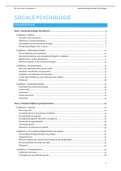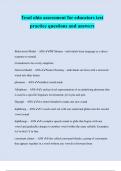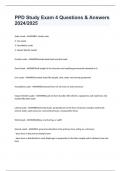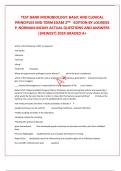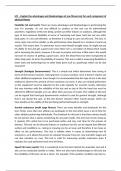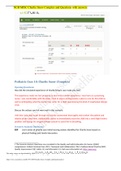PRELIMINARIES TO TRIAL IN THE CC
1. Arraignment, change of plea and pleas to lesser offences
D12.13 Consequences of a Finding of Unfitness
s.5 Criminal Procedure (Insanity) Act 1964➔ if the accused is found unfit to plead, and the
jury determine that he did the act or made the omission as charged, the court may make one
of the following orders:
(a) a hospital order, for admission to such hospital as the Secretary of State specifies such
an order may be made the subject of a restriction order without limit of time;
(b) a supervision order; or
(c) an order for the accused's absolute discharge.
Before the court can make a supervision order for an unfit accused, it must have evidence
that the necessary arrangements for that supervision are in place & supervision is available.
COA HAVE RECOGNISED where an accused is found unfit to plead to a charge of murder, the
TJ was compelled to make an order for admission to a hospital without limitation of time
whether or not such an order was justified on the medical evidence directed to the question
of whether fit to plead.
D12.16 Procedure where Accused is Found Fit to Plead → If the accused is found fit to plead
before the calling of any prosecution evidence, he will thereafter be arraigned in the usual
way and plead to the indictment.
Section 4, 4A, 5 Criminal Procedure (Insanity) Act 1964
4.—
(1) This section applies where on the trial of a person the question arises (at the instance
of the defence or otherwise) whether A is under a disability, that is to say, under any
disability such that apart from this Act it would constitute a bar to his being tried.
(2) If, having regard to the nature of the supposed disability, the court are of opinion that
it is expedient to do so and in the interests of the accused, they may postpone
consideration of the question of fitness to be tried until any time up to the opening of
the case for the defence.
(3) If, before the question of fitness to be tried falls to be determined, the jury return a
verdict of acquittal on the count or each of the counts on which the accused is being
tried, that question shall not be determined.
(4) Subject to subsections (2) and (3) above, the question of fitness to be tried shall be
determined as soon as it arises.
(5) The question of fitness to be tried shall be determined by the court without a jury.
(6) The court shall not make a determination under subsection (5) above except on the
written or oral evidence of two or more registered medical practitioners at least one of
whom is duly approved.
4A.—
, (1) This section applies where in accordance with section 4(5) above it is determined by a
court that the accused is under a disability.
(2) The trial shall not proceed or further proceed but it shall be determined by a jury—
(a) on the evidence (if any) already given in the trial; and
(b) on such evidence as may be adduced or further adduced by the prosecution, or by
a person appointed by the court under this section to put the case for the defence,
whether they are satisfied, as respects the count or each of the counts on which the accused
was to be or was being tried, that he did the act or made the omission charged against him
as the offence.
(3) If as respects that count or any of those counts the jury are satisfied as mentioned in
sub-section (2) above, they shall make a finding that the accused did the act or made the
omission charged against him.
(4) If as respects that count or any of those counts the jury are not so satisfied, they shall
return a verdict of acquittal as if on the count in question the trial had proceeded to a
conclusion.
(5) Where the question of disability was determined after arraignment of the accused, the
determination under subsection (2) is to be made by the jury by whom he was being tried.
5.—
(1) This section applies where—
(a) a special verdict is returned that the accused is not guilty by reason of insanity; or
(b) findings have been made that the accused is under a disability and that he did the act
or made the omission charged against him.
(2) The court shall make in respect of the accused—
(a) a hospital order (with or without a restriction order);
(b) a supervision order; or
(c) an order for his absolute discharge.
(3) Where—
(a) the offence to which the special verdict or the findings relate is an offence the sentence
for which is fixed by law, and
(b) the court have power to make a hospital order, the court shall make a hospital order
with a restriction order (whether or not they would have power to make a restriction
order apart from this subsection).
(4) In this section— 'hospital order' has the meaning given in s.37 MHA; 'restriction order'
has the meaning given to it by section 41 of that Act; 'supervision order' has the meaning
given in Part 1 of Schedule 1A to this Act.
The Arraignment
The arraignment is when at PTPR or a pre-trial hearing, the court clerk reads out each count
on the indictment to the D and he will be asked if he pleads guilty or not guilty.
D12.53 Procedure on Arraignment (contained in CrimPR 3.24)



